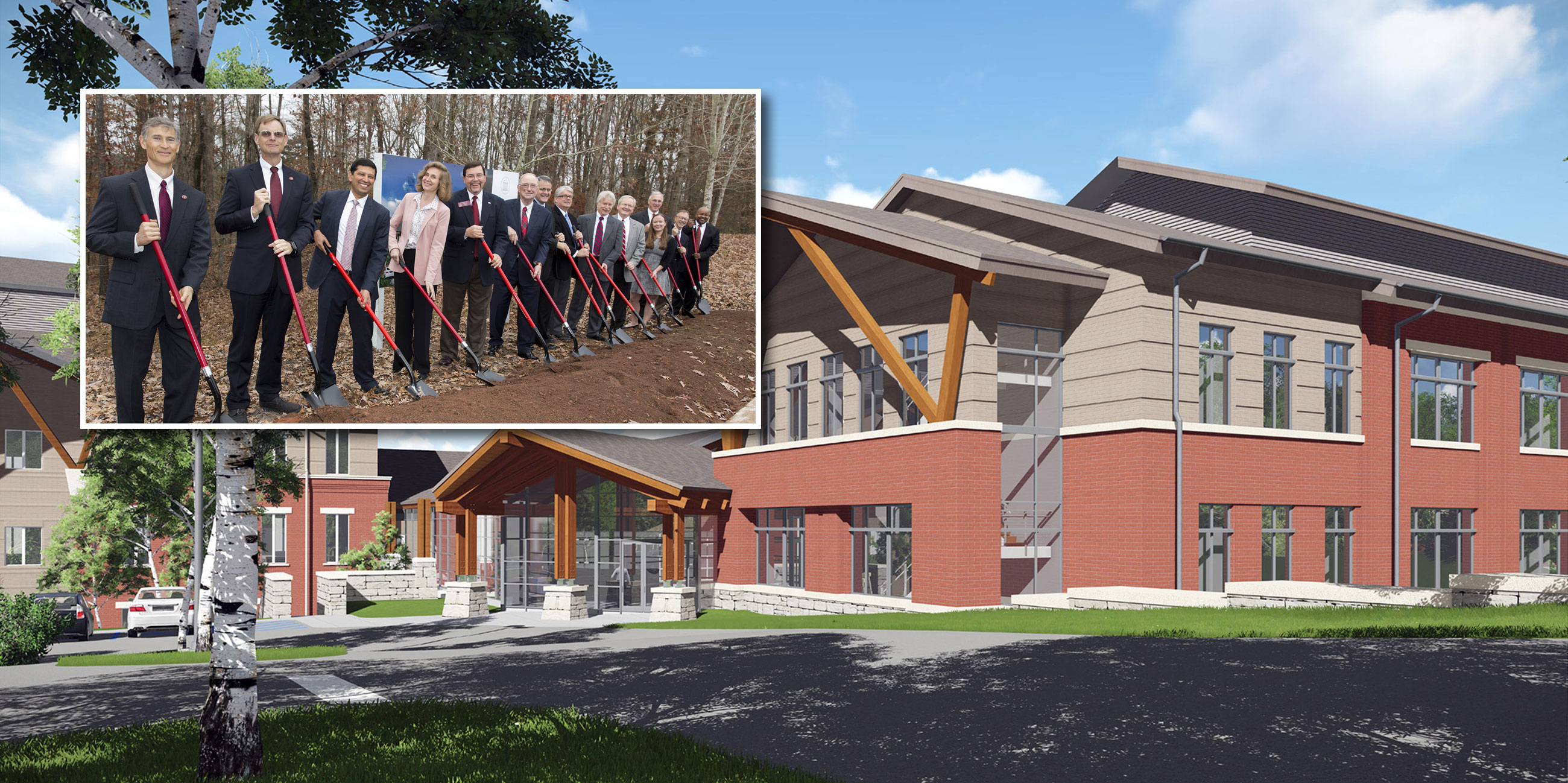The University of Georgia broke ground Dec. 1 on the Center for Molecular Medicine, a 43,000-square-foot facility that will continue to advance UGA’s efforts in human health research.
When finished, the building on Riverbend Road will house up to 10 research groups whose primary goal will be to conduct translational research that positively impacts human health. The facility will include laboratories, faculty offices, shared cell culture facilities and other shared spaces that support research.
“The Center for Molecular Medicine is an expansion of the university’s capacity to translate research into products and other innovations that support economic development and enhance the quality of life in our state, our nation and the world,” said UGA President Jere W. Morehead. “Here, the very best researchers will investigate the molecular and cellular basis of human disease and develop new ways to diagnose, treat and prevent diseases that affect millions of people worldwide.”
State and local officials joined university administrators on the work site adjacent to the Complex Carbohydrate Research Center to celebrate the official start of construction. Funding for the facility came from two primary sources: Gov. Nathan Deal and the General Assembly approved $17 million in state funds for the new building, and these funds were matched by $8 million in non-state funds.
“I’m excited about what this project will do for the state of Georgia,” said University System of Georgia Chancellor Hank Huckaby, who led the construction of the Complex Carbohydrate Research Center while serving as UGA’s senior vice president for finance and administration, a role he held until 2006. “It will be an important factor in the land-grant university here doing what it should do and needs to do to serve the people of this state, to bring more economic development and also improve the health of our population.”
The center has operated in various locations on UGA’s campus since its founding in 2012. The new facility will give the researchers better opportunities to collaborate with each other and with faculty housed in the Complex Carbohydrate Research Center.
“With the interactions of the Complex Carbohydrate Research Center and the CMM, we’ll be able to really address fundamental problems in health science, and I’m really looking forward to seeing that happen,” said Alan Darvill, director of the Complex Carbohydrate Research Center.
“The Center for Molecular Medicine will enhance UGA’s mission and reputation in the biomedical research area,” said Stephen Dalton, director of the CMM. “I’m delighted to be associated with the center and to be collaborating with Dr. Darvill in this venture and with the Complex Carbohydrate Research Center. I look forward to the building’s construction and to the many great scientific discoveries that will come out of the center in the future.”
CMM research groups will focus on stem cells and regenerative medicine, vaccine development and therapeutics, and human disease models such as diabetes and other metabolic diseases, neurological and cardiovascular disorders, and obesity and biomedical glycobiology.
The center will train undergraduate and graduate students to become the next generation of leading biomedical scientists, such as M.D./Ph.D. student Miranda Hayworth of Oak Ridge, North Carolina, who conducted research under Dalton’s direction.
“Research, without a doubt, enhances the quality of modern medicine, and I hope that the many undergraduates here at UGA interested in the field of medicine will take advantage of the tremendous biomedical research opportunities that the new Center for Molecular Medicine will generate,” said Hayworth, who successfully defended her dissertation and is now completing her medical education at the Georgia Regents University/UGA Medical Partnership in Athens.


